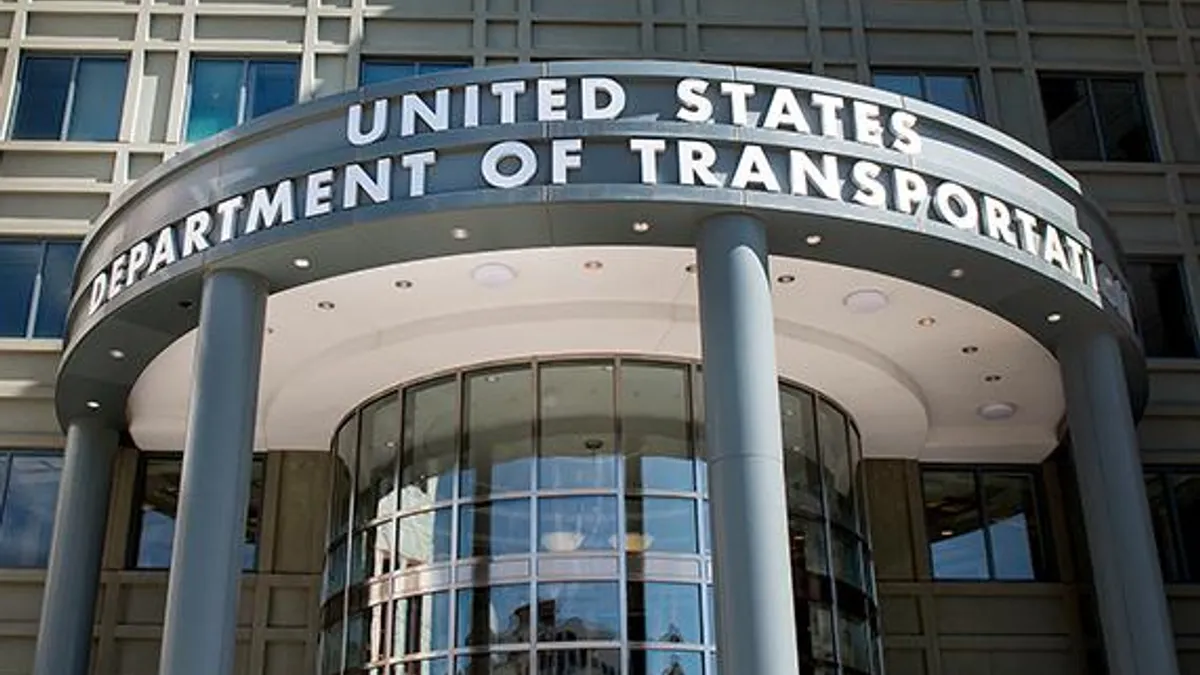Dive Brief:
- The Federal Motor Carrier Safety Administration approved a planned increase in fees last week for interstate carriers, brokers, freight forwarders and leasing companies.
- Fees for the Unified Carrier Registration Plan and Agreement will increase by 25% on average for the 2025 registration year, where an annual fee for the smallest entities would rise from $37 to $46 and the largest entities will go from $35,836 to $44,836.
- The changes are effective July 17, but petitions for reconsideration will be heard until then.
Current and new registration fees per entity
| Number of units in a fleet | 2024 current rate | 2025 new rate |
|---|---|---|
| 0–2 | $37 | $46 |
| 3–5 | $111 | $138 |
| 6–20 | $221 | $276 |
| 21–100 | $769 | $963 |
| 101–1,000 | $3,670 | $4,592 |
| 1,001 and above | $35,836 | $44,836 |
SOURCE: FMCSA final rule
Dive Insight:
The program is limited to collecting $107.78 million per year plus administrative fees for 41 participating states, meaning a surge in carriers in one year can mean subsequent refunds — and big upticks can also occur.
But other factors are at play. The FMCSA sets the fees based on a recommendation from the UCR board. Last year, the board agreed to change a formula that helps project how many entities will pay the interstate registration fee.
The board had been using a calculation based on monthly cost data, using the lowest level to project certain signups, but that can underestimate collections, an FMCSA final rule said.
Then the board used a calculation based on an average, which can overestimate the collections. That formula was used for the 2023 and 2024 registration years.
Last July, the UCR board agreed to return to the minimum method for the 2025 registration year and going forward.
Whether entities even pay the fee was a topic leaders discussed last month at a UCR subcommittee meeting, seeking to broaden education efforts. Above 85% of subject entities recently complied with the fees, per a consultant.
“For all of the new entrants, we generally register about 50%,” consultant Dave Lazarides told the subcommittee.
While the back-and-forth fee increases and decreases may seem like a bit of a whiplash to some who criticized the budgeting capabilities of the program, the FMCSA defended the practice and said it was reasonable.
The agency further said that the proposed fees are still lower than those from registration years 2019 through 2022.
For the 2023 registration, FMCSA approved an approximately 31% decrease, and a year later, the lowered fees were further reduced by about 9%.












